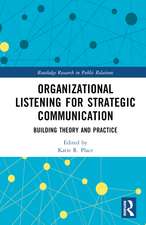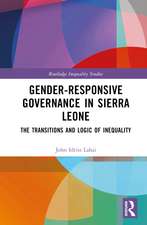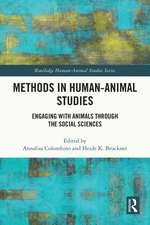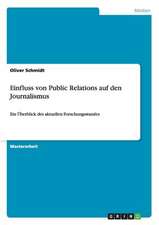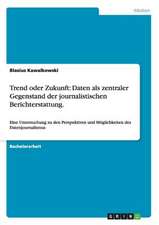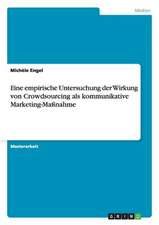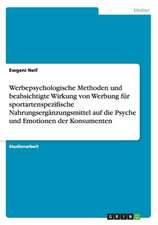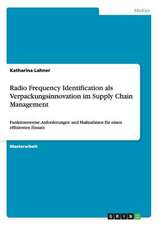Qualitative Researcher Vulnerability: Negotiating, Experiencing and Embracing
Editat de Bryan C. Clift, Ioannis Costas Batlle, Sheree Bekker, Katharina Chudzikowskien Limba Engleză Hardback – 28 iun 2023
Drawing on an interdisciplinary group of authors—across criminology, education, feminisms, geography, health, kinesiology, nursing, management and organisation, policy, political science, psychology, sociology, and qualitative inquiry writ broad—the book explores the ways in which we might understand and work with researcher vulnerability, most notably in relation to ethics, risk, empathy, emotion, and power. Ultimately, the authors suggest researcher vulnerability is a vital component of our research practices throughout the research process, for emerging as well as experienced researchers. Whilst researcher vulnerability can be something to protect against, it is also something to be aware of, explore, learn from, work with, and at times (and with care and consideration) embrace.
This book is suitable for undergraduate, postgraduate students, and emerging and established researchers who are utilising qualitative research. It will be especially useful for researchers examining (potentially) sensitive topics, or for those who wish to develop more responsive, responsible, ethical, or reciprocal approaches to qualitative practices.
Chapter 4 of this book is freely available as a downloadable Open Access PDF at http://www.taylorfrancis.com under a Creative Commons [Attribution-Non Commercial-No Derivatives (CC-BY-NC-ND)] 4.0 license.
Chapter 11 of this book is freely available as a downloadable Open Access PDF at http://www.taylorfrancis.com under a Creative Commons [Attribution (CC-BY-NC-ND)] 4.0 license.
| Toate formatele și edițiile | Preț | Express |
|---|---|---|
| Paperback (1) | 311.70 lei 3-5 săpt. | +23.70 lei 6-12 zile |
| Taylor & Francis – 28 iun 2023 | 311.70 lei 3-5 săpt. | +23.70 lei 6-12 zile |
| Hardback (1) | 934.96 lei 6-8 săpt. | |
| Taylor & Francis – 28 iun 2023 | 934.96 lei 6-8 săpt. |
Preț: 934.96 lei
Preț vechi: 1027.43 lei
-9% Nou
Puncte Express: 1402
Preț estimativ în valută:
178.91€ • 191.31$ • 149.17£
178.91€ • 191.31$ • 149.17£
Carte tipărită la comandă
Livrare economică 17 aprilie-01 mai
Preluare comenzi: 021 569.72.76
Specificații
ISBN-13: 9781032393292
ISBN-10: 1032393297
Pagini: 262
Ilustrații: 2 Tables, black and white; 3 Line drawings, black and white; 2 Halftones, black and white; 5 Illustrations, black and white
Dimensiuni: 156 x 234 x 21 mm
Greutate: 0.45 kg
Ediția:1
Editura: Taylor & Francis
Colecția Routledge
Locul publicării:Oxford, United Kingdom
ISBN-10: 1032393297
Pagini: 262
Ilustrații: 2 Tables, black and white; 3 Line drawings, black and white; 2 Halftones, black and white; 5 Illustrations, black and white
Dimensiuni: 156 x 234 x 21 mm
Greutate: 0.45 kg
Ediția:1
Editura: Taylor & Francis
Colecția Routledge
Locul publicării:Oxford, United Kingdom
Public țintă
Academic, Postgraduate, and Undergraduate AdvancedCuprins
Introduction: The Relevance and Importance of Researcher Vulnerability in Qualitative Research 1. Vulnerability, the Pursuit of Knowledge, and the Humanity of Doing Research; Section I: Strategies for Negotiating Researcher Vulnerability 2. Research Journaling to Deal with Vulnerabilities in Research 3. Qualitative Analysis in Online Research: Protecting Against Researcher Vulnerabilities 4. Supporting Emotionally Demanding Research: Developing Guidance for a University Research Centre 5. Addressing Researcher Vulnerability with the Trauma and Resilience Informed Research Principles and Practices Framework; Section II: Experiences of Researcher Vulnerability 6. Sticking Your Head Above the Parapet: On the Importance of Researcher Resilience in Auto/biographical Writing 7. Affecting Accounts: Autobiographical Memoirs and the Vulnerable Researcher 8. Researcher, Fighter, Cunt: Vulnerability and Violence in the MMA Field 9. Ethnographic Vulnerabilities: Power, Politics, and Possibility; Section III: Embracing Researcher Vulnerability 10. Femme Praxis: Using Femme Theory to Foster Vulnerability within Research Design and Institutions 11. Framing Transdisciplinary Research as an Assemblage: A Case Study from a Mental Health Setting 12. ‘Please Explain to Me How I’m Vulnerable’: Learning How to Rework Experiences of Researcher Vulnerability by Listening Carefully to Care-Experienced Young People
Notă biografică
Bryan C. Clift is Senior Lecturer (Associate Professor) and Director of the Centre for Qualitative Research (CQR) in the Faculty of Humanities and Social Sciences and Department for Health at the University of Bath, UK.
Ioannis Costas Batlle is Lecturer (Assistant Professor) in the Department of Education at the University of Bath, UK, and a Co-Director of the Centre for Qualitative Research.
Sheree Bekker is Senior Lecturer (Associate Professor) in the Department for Health at the University of Bath, UK. She is a member of the Centre for Qualitative Research, Centre for Health and Injury and Illness Prevention in Sport (CHI2PS), and UK Collaborating Centre on Injury and Illness Prevention in Sport (UKCCIIS).
Katharina Chudzikowsi is Senior Lecturer (Associate Professor) in Organisation Studies at the School of Management, University of Bath, UK.
Ioannis Costas Batlle is Lecturer (Assistant Professor) in the Department of Education at the University of Bath, UK, and a Co-Director of the Centre for Qualitative Research.
Sheree Bekker is Senior Lecturer (Associate Professor) in the Department for Health at the University of Bath, UK. She is a member of the Centre for Qualitative Research, Centre for Health and Injury and Illness Prevention in Sport (CHI2PS), and UK Collaborating Centre on Injury and Illness Prevention in Sport (UKCCIIS).
Katharina Chudzikowsi is Senior Lecturer (Associate Professor) in Organisation Studies at the School of Management, University of Bath, UK.
Descriere
This book provides conceptual, experiential, and practical illustrations through which to explore the vulnerability of the researcher - what vulnerability as a researcher means, how it can affect research practice, and how embracing it can improve researcher relationships with participants and research outputs.




